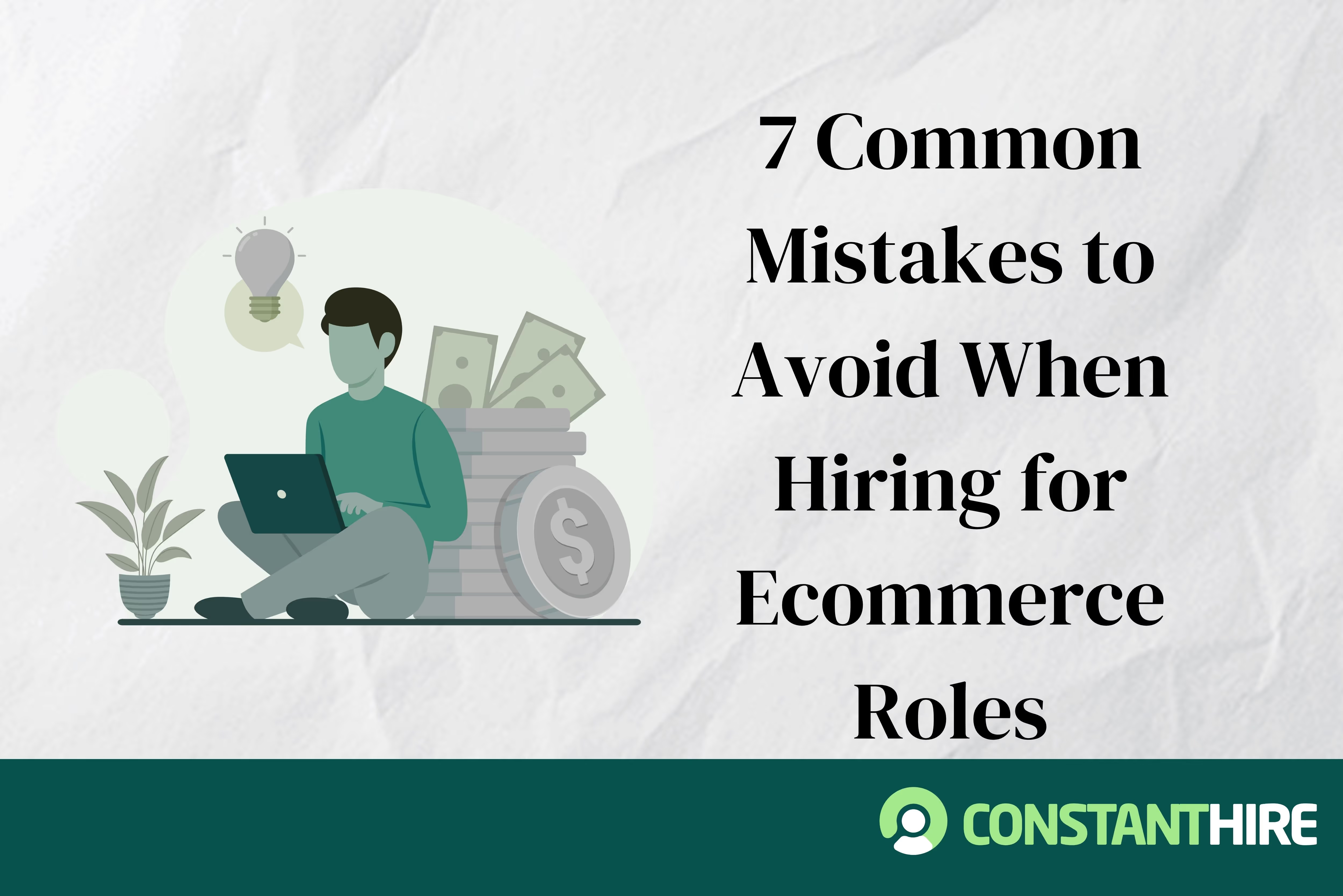7 Common Mistakes to Avoid When Hiring for Ecommerce Roles


Hiring for ecommerce roles looks easy on paper. Post a job, get a few applicants, pick the best fit. But in practice, most brands underestimate how competitive the talent market has become and how small hiring mistakes can snowball into long-term problems.
That’s why working with an experienced ecommerce recruitment agency can make such a difference. It’s not just about sourcing candidates; it’s about avoiding the traps that waste time, money, and momentum.
Here are seven of the biggest hiring mistakes ecommerce brands make and how to sidestep each one.
A vague description like “We’re looking for a digital marketer to help grow our brand” won’t attract the right people. Candidates want to understand scope, reporting lines, tools, and KPIs.
Be specific. Mention whether the role owns paid media, CRM, or site performance. Outline budgets, goals, and expected collaboration with design or operations.
If you need help defining those details, our guide to ecom marketing recruitment agency hiring shows how clearer role framing increases both quality and retention.
Speed matters, but so does patience. Hiring too quickly leads to mismatched expectations; waiting too long means losing top talent to faster-moving competitors.
Build a structured process with clear steps and timeframes. Aim for no more than two rounds of interviews and a 10-day decision window. Candidates will appreciate transparency and you’ll keep momentum without sacrificing quality.
This might be the most common mistake in early-stage ecommerce. Expecting a single hire to handle paid ads, email, SEO, design, and reporting sets them up to fail.
Define responsibilities narrowly enough for one person to succeed. If you need multiple skill sets, consider fractional or freelance specialists first. Once performance stabilises, expand into full-time roles.
It’s tempting to chase candidates from household-name retailers or global DTC brands. But those hires often struggle in smaller, fast-moving environments.
Look instead for people who’ve worked across varied setups including start-ups, agencies, and scaling brands. They tend to be more resourceful and adaptable, which is invaluable when your team or budget shifts week to week.
Even the best hire can underperform without context. Small ecommerce teams often skip structured onboarding, assuming new hires will “figure it out.”
Set them up with clear documentation: brand guidelines, marketing playbooks, platform logins, and a 30-60-90-day plan. Strong onboarding improves retention and output faster than any salary incentive.
Skills get people hired, but communication keeps them effective. Misalignment here causes delays, missed deadlines, and tension across teams.
During interviews, assess how candidates explain complex ideas. Do they simplify clearly? Do they collaborate well with creative or technical partners? A small culture mismatch now becomes a big problem later.
It sounds basic, yet many growing brands skip verification under time pressure. References and work samples aren’t just formalities, they reveal collaboration style, work ethic, and real-world results.
Ask for specifics: What metrics did they own? How did they contribute to revenue or retention? Reliable recruiters will do this legwork for you, so you’re not making decisions blind.
Hiring in ecommerce isn’t about luck. It’s about process. Document your approach, stay realistic about scope, and use external support when needed.
If you’re scaling quickly and need guidance, partner with an experienced ecommerce recruitment agency like Constant Hire. We connect growing brands with proven ecommerce marketers, operators, and strategists worldwide helping you build the right team without repeating the same hiring mistakes.
Top talent on your calendar in under 5 days.